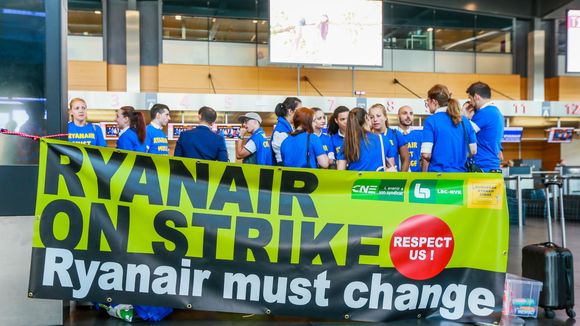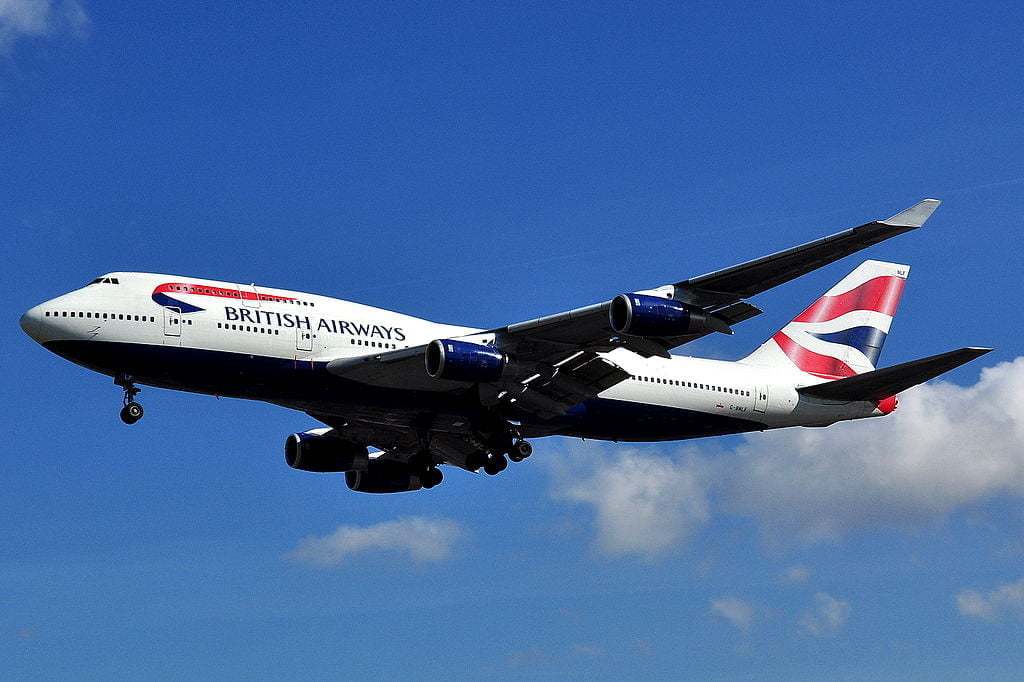Airline pilots over the last decade have seen consistent attacks on their terms and conditions. Recent strikes at BA and Ryanair show that pilots have now reached their limits. Solidarity with striking pilots.
In the end, it was a magnificent show of strength: British Airways had to cancel the vast majority of its flights across its whole network as a result of industrial action by its pilots on 9-10 September. The determination shown in the face of media slanders and pressure from management was inspiring.
The defiant mood on display is best summed up in the message we received from a BA pilot participating in the strike:
“Amazing unity. Went to the support centre yesterday and withdrew my labour. So many turned up (about 1000 people). I was nervous as hell, not knowing how the day would go. Had some nasty threatening emails from the company (everyone who striked has had them).
“Some of the pay deduction appear illegal so BALPA legal are busy. They’ve ripped up our agreements for scheduling, etc. for a recovery period and expecting us to work to EASA limits now. Long haul they are changing trips from three crew to two crew where they can. Going about it the wrong way as making the resolve for everyone even bigger. I’m told day one 96% withdrew labour and today 99%. Amazing numbers.”
It is a fairly standard tactic in industrial disputes in aviation for airlines to put out a great deal of false information, or to massage the figures in an attempt to set public opinion against what are very sensible and reasonable requests from pilots and cabin crew. This is true for the current stalemate at BA. But we also saw the same kind of propaganda in the ongoing industrial dispute at Ryanair, where pilots also went on strike last month and will do so again in the coming weeks.
Exploitation
 Pilots have been portrayed as overpaid primadonnas who really don’t work that hard. The reality, however, is that over the last few decades, terms and conditions have only gone downhill: pilots work harder than ever, and in the summer months are often pushed to the legal, physical, and mental limits.
Pilots have been portrayed as overpaid primadonnas who really don’t work that hard. The reality, however, is that over the last few decades, terms and conditions have only gone downhill: pilots work harder than ever, and in the summer months are often pushed to the legal, physical, and mental limits.
Competition is cut-throat. For airlines to stay afloat, they are forced to squeeze their workforce and pay them as little as they can get away with.
After the recession in 2008, there was a general ‘tightening of the belts’ across all airlines. Pilots and cabin crew were asked to be ‘realistic’ and accept this race to the bottom as some kind of natural law. A weak recovery followed. Profit margins were restored – £2 billion in the case of BA. But this all went to shareholders and upper management. The belt remained tightened.
Solidarity
As we have discussed in previous articles, pilots are naturally fairly conservative people, who traditionally wouldn’t go on strike easily. However, there is always a limit of what people will put up with. Given the impressive turnout, this limit has clearly been reached for the BA pilots.
Implementing punitive sanctions on those who have ‘gone out’ is only going to harden the resolve. The sleeping tiger has well and truly awoken.
BA pilots deserve the support and solidarity of the rest of the labour movement. Whilst the airline may have fallen from grace over the past few years, their terms and conditions remain something of a benchmark.
Traditionally BA have hoovered up crews from other airlines, partly forcing the latter to up their game. But if there is nowhere left for people to go because BA’s terms and conditions have fallen below an aspirational level – a process that is happening already – then other airlines will be emboldened to go after their workers with greater tenacity too.
BALPA has stated that the strikes have been a “powerful demonstration of the strength of feeling of BA pilots”. We would go further: the strikes show who really has the power in society – the workers who generate the profits, but who are deprived of these gains.
A successful strike, however, can only be achieved when the workforce is united and where action is coordinated on an international level. This is why the Ryanair strikes have so far been ineffective, with pilots from other bases flown in to cover the strikes.
In this respect, the strongly unionised BA pilots have shown the way. It’s time for us all to show some backbone in our respective airlines and find our strength in numbers.






